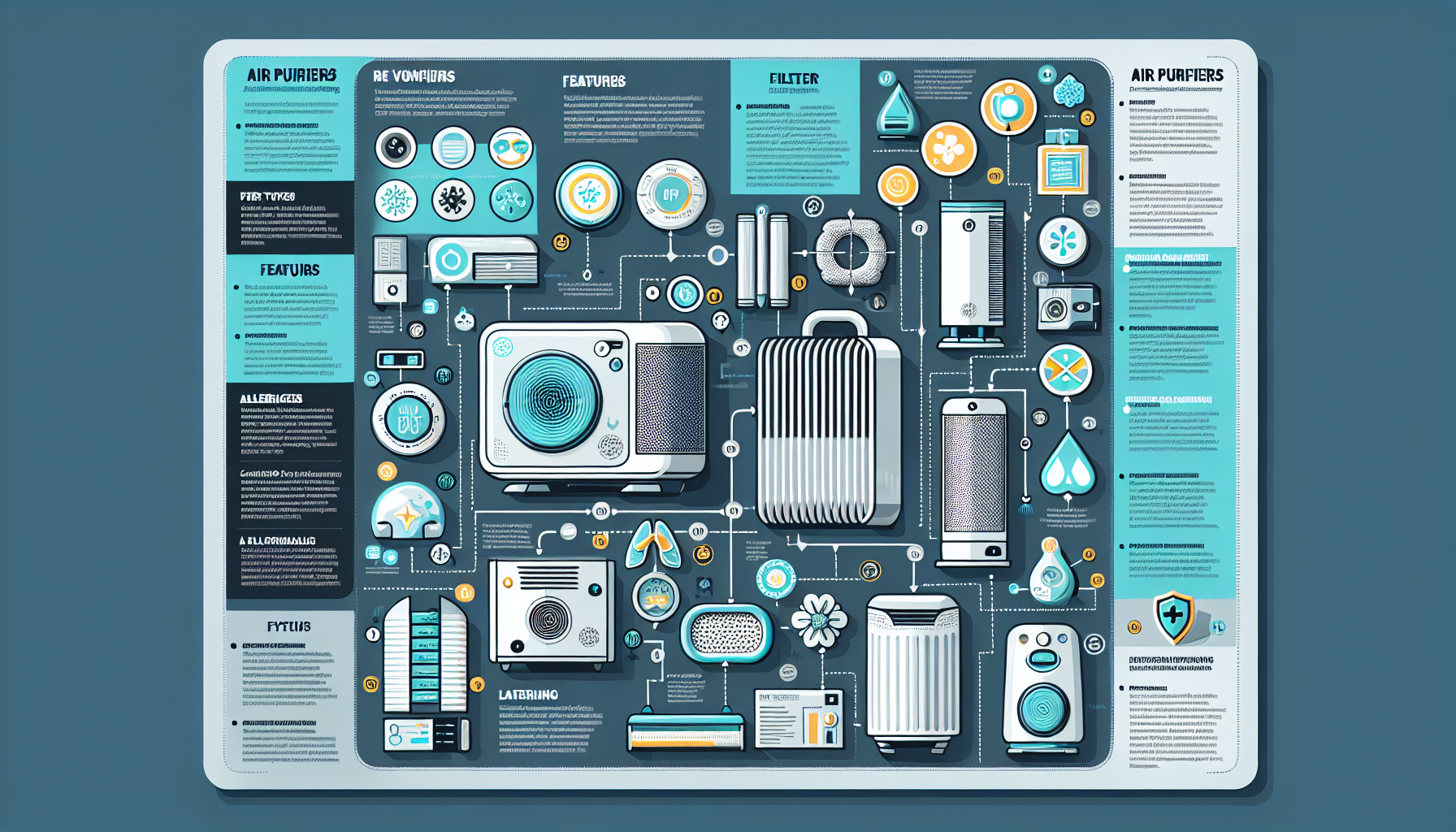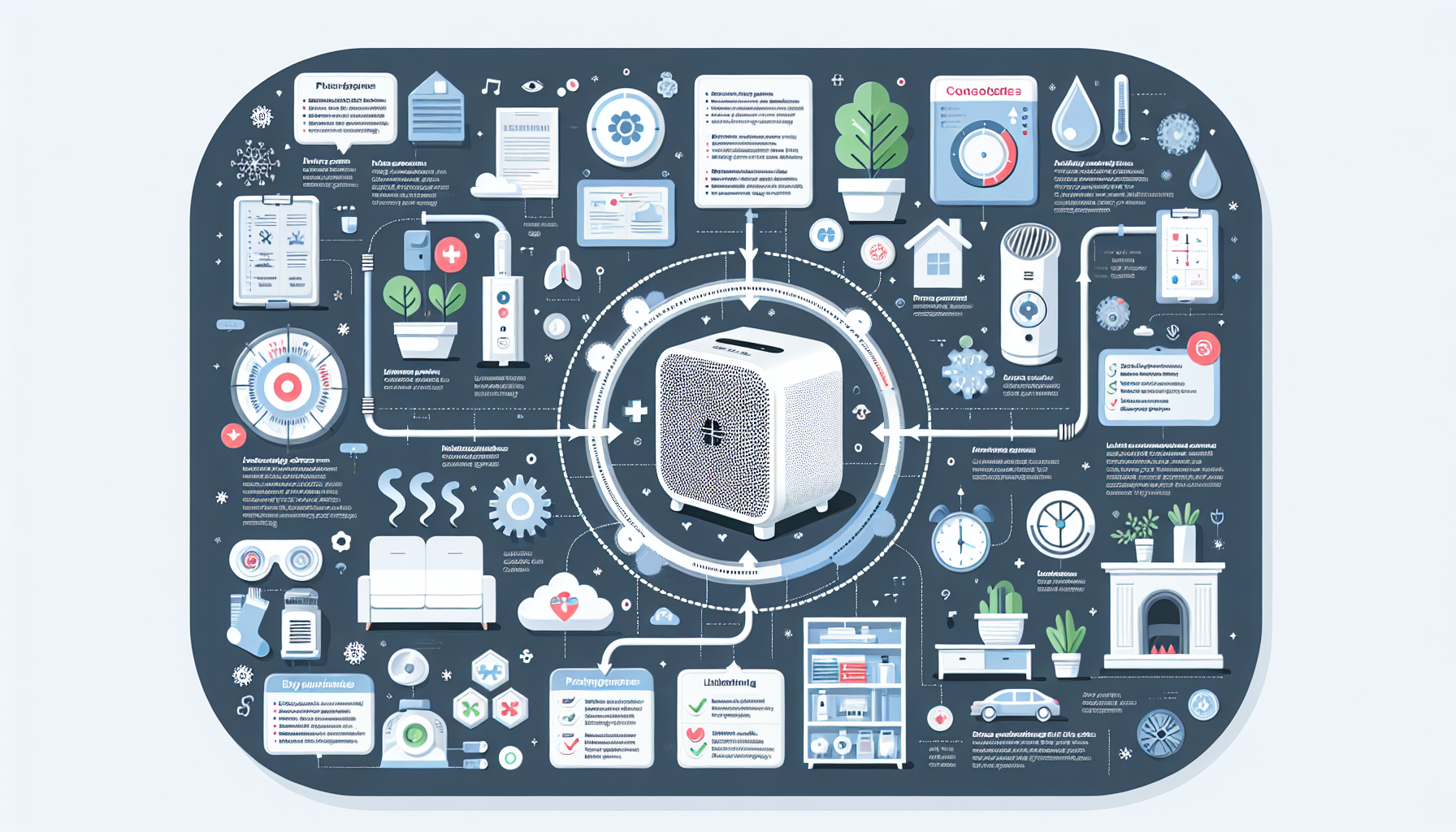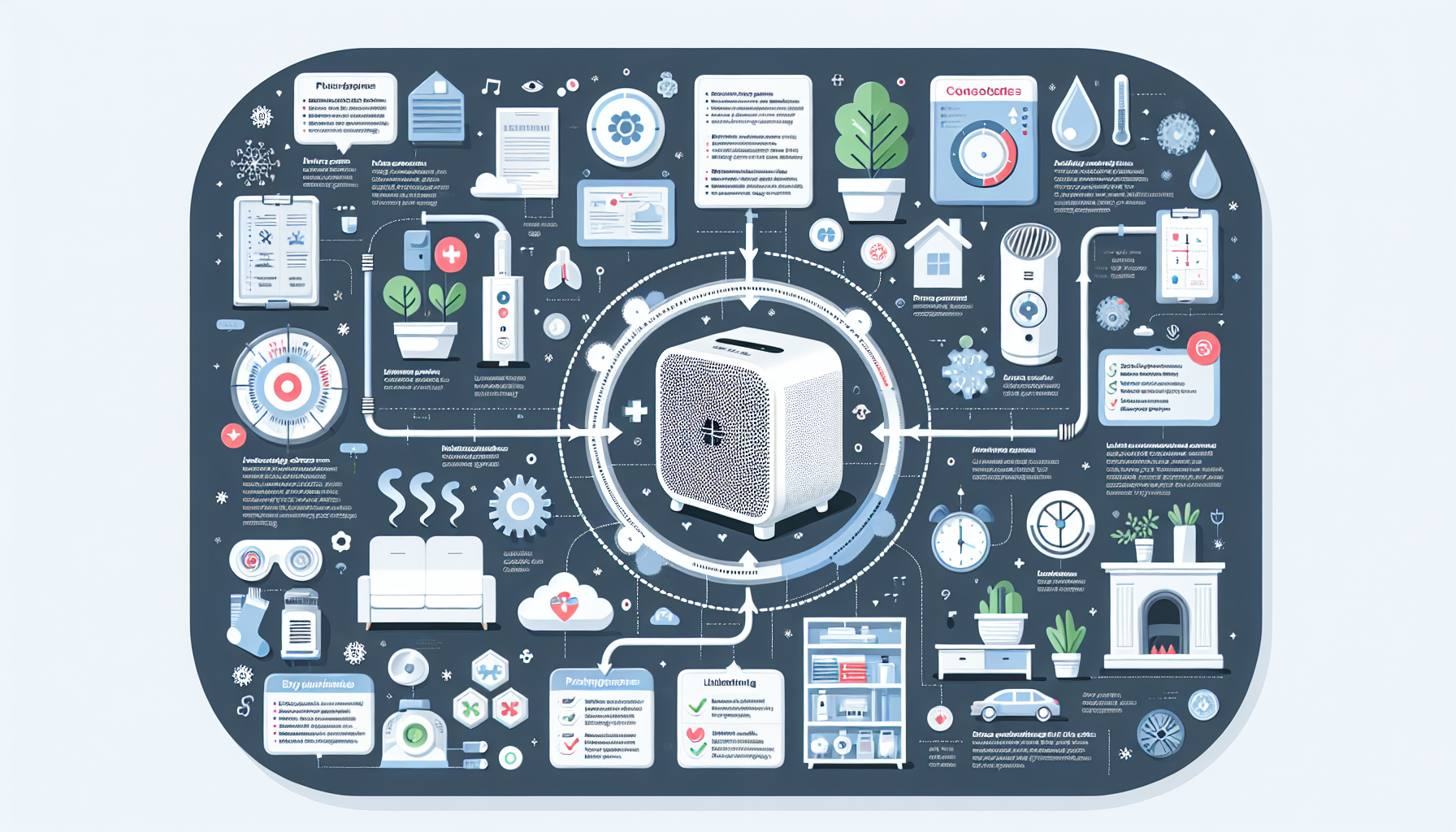When it comes to choosing an air purifier, finding the right one that prioritizes your health is crucial. With numerous options available in the market, it can be overwhelming to determine which air purifier is best for your specific needs. From eliminating allergens to reducing pollutants, this article will provide you with essential information to make an informed decision and breathe cleaner, healthier air in your environment.
Types of Air Purifiers
When it comes to choosing an air purifier for your health, there are several options available on the market. Each type of air purifier utilizes different technologies to remove pollutants and improve indoor air quality. Let’s take a closer look at some of the most common types of air purifiers:
High-Efficiency Particulate Air (HEPA) Filters
HEPA filters are widely recognized as one of the most effective types of air purifiers. These filters use a dense mesh to trap small particles, such as dust, pollen, pet dander, and mold spores. HEPA filters are capable of capturing particles as small as 0.3 microns, ensuring that the air you breathe is free from allergens and irritants.
Activated Carbon Filters
Activated carbon filters are designed to target odors, gases, and chemical pollutants. These filters are created by treating carbon with oxygen, which creates a highly porous material with a large surface area. As air passes through the carbon filter, odors and volatile organic compounds (VOCs) are absorbed, leaving the air fresh and clean. Activated carbon filters are commonly used in conjunction with other filters, such as HEPA filters, to provide comprehensive air purification.

Ultraviolet Germicidal Irradiation (UVGI)
UVGI air purifiers use ultraviolet light to destroy airborne pathogens, such as bacteria, viruses, and mold spores. This technology works by emitting UV-C light, which damages the DNA of microorganisms, rendering them unable to reproduce and infect. UVGI air purifiers are particularly effective in eliminating germs and maintaining a healthy environment, especially in hospitals, clinics, and other high-risk areas.
Ionic Air Purifiers
Ionic air purifiers, also known as ionizers or negative ion generators, work by emitting negatively charged ions into the air. These ions attach to airborne particles, such as dust, pollen, and mold spores, causing them to become too heavy to remain airborne. As a result, the particles fall to the ground or onto surfaces, reducing their concentration in the air. Ionic air purifiers can be effective in improving air quality, but they may produce small amounts of ozone as a byproduct, which can be a concern for those with respiratory sensitivities.

Ozone Generators
Ozone generators are designed to produce ozone, a highly reactive molecule that can neutralize odors and kill bacteria and other microorganisms. However, it is important to note that ozone can also be harmful to human health, particularly when produced in large quantities. While ozone can effectively eliminate certain pollutants, the use of ozone generators should be approached with caution and in accordance with recommended safety guidelines.
Photocatalytic Oxidation (PCO) Filters
PCO filters utilize a combination of UV light and a catalyst, such as titanium dioxide, to break down pollutants into harmless byproducts, such as carbon dioxide and water vapor. This technology is particularly effective in eliminating volatile organic compounds (VOCs), which can be found in common household items, such as cleaning products, paints, and new furniture. PCO filters can work in conjunction with other filtration technologies, such as HEPA filters, to provide comprehensive air purification.
Electrostatic Precipitators
Electrostatic precipitators use an electric charge to capture and remove particles from the air. As air passes through the purifier, the particles are charged and attracted to oppositely charged metal plates or collection cells. This technology is effective in removing large particles, such as dust and pet hair, from the air. However, it may not be as effective in removing smaller particles, such as bacteria and viruses.
Polarized Media Electronic Air Cleaners
Polarized media electronic air cleaners utilize an electric charge to attract and capture particles from the air. These air purifiers employ a combination of polarized and non-polarized media to create an electric field that traps pollutants. This technology is effective in removing a wide range of airborne particles, including dust, pollen, pet dander, and mold spores.
Hybrid Air Purifiers
Hybrid air purifiers combine multiple filtration technologies to provide comprehensive air purification. These purifiers often incorporate a combination of HEPA filters, activated carbon filters, and other technologies, such as UV-C light or ionization. Hybrid air purifiers offer the benefits of different filtration methods and are particularly effective in removing a wide range of pollutants from the air.
Nano Silver Filters
Nano silver filters utilize silver nanoparticles to inhibit the growth of bacteria and other microorganisms. These filters are commonly used in air purifiers to prevent the colonization of pathogens on the filter surface. The antimicrobial properties of silver make nano silver filters an effective tool in maintaining a clean and germ-free environment.
Now that we have explored the different types of air purifiers, let’s delve into the factors you should consider when choosing the best air purifier for your health.

